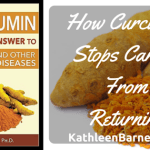Most of us have probably taken melatonin to help us sleep after a stressful day or to get sleep patterns back in sync after an international flight.
Now new research shows that melatonin has other important benefits outside of its ability to regulate sleep rhythms.
In fact without the brain’s ability to manufacture the hormone melatonin, which can only happen in the dark, we cannot sleep.
If those natural sleep-wake cycles are interrupted, all sorts of havoc can take place. Some of melatonin’s benefits are derived from the re-establishment of the sleep cycle and others are completely independent benefits.
- Prevent breast cancer: New research shows that flight attendants are particularly susceptible to breast cancer, largely because they are continuously changing time zones and interrupting their bodies’ natural sleep cycles. Research from the University of Georgia suggests that melatonin may help diminish the risk. Other research shows melatonin regulates excess circulating estrogen that can cause breast and other hormonally-related cancers.
- Prevent cellular chaos that causes cancer: Melatonin has independently been shown to trigger apoptosis, the mechanism that tells cells that their life cycle is over. This mechanism is often missing when cancer occurs, resulting in wild cell growth. It has also been proven to interfere with angiogenesis, the rogue mechanism by which malignant tumors grow their own blood supply. It also vastly increased longevity of people diagnosed with a particularly brutal type of brain cancer.
- Minimize the damage from a traumatic brain injury: Turkish research shows that melatonin enhances the brain’s ability to use the brain’s ability to use brain enhancing beta carotene, vitamin C and vitamin E and glutathione. These essential nutrients are somehow blocked when there is a traumatic brain injury.
- Combat inflammation: As a powerful antioxidant, melatonin scavenges those nasty free radical oxygen molecules that causes the biological equivalent of rust on your cells, damaging their functionality and creating inflammation, the underlying causes of many of the disease associated with aging.
So melatonin isn’t just for sleep anymore.
Dosage
As with many natural products, more isn’t always better. In fact, with melatonin, more is usually not better.
You probably don’t need a lot to help you sleep–.25 to .50 mg should be the starting point and working up to no more than 5 mg. A sublingual spray is the quickest and most effective since it’s absorbed fast through the mucosal tissues of the mouth.
There are nearly 1,000 studies showing that melatonin supplements can help prevent cancer and reduce side effects in cancer patients undergoing chemotherapy.
We also know that the body’s natural ability to produce melatonin diminishes with age, which offers one explanation for insomnia among older people.
Most experts recommend 3 mg of melatonin for cancer prevention and higher dosages, with input from your doctor, if you have cancer.
NOTE: Recent Australian research suggests that melatonin should not be used by children or adolescents because, as a hormone, it has the potential to disrupt other hormonal systems which are especially active in childhood and adolescence.
Read more about maintaining healthy sleep habits in these articles from Kathleen.







